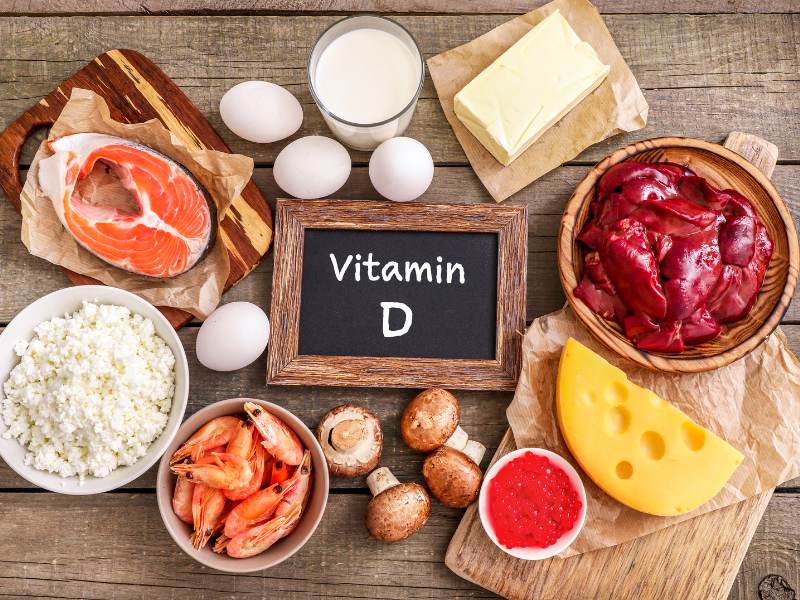 While we commonly call it a vitamin, vitamin D actually acts more like a hormone. Vitamin D is one of the fat-soluble vitamins along with A, E, and K. Fat soluble means it is best delivered and absorbed by the body in the presence of fat. Fat solubility also gives us the ability to store it in our fat cells for later use and doesn’t always need to be taken every day.
While we commonly call it a vitamin, vitamin D actually acts more like a hormone. Vitamin D is one of the fat-soluble vitamins along with A, E, and K. Fat soluble means it is best delivered and absorbed by the body in the presence of fat. Fat solubility also gives us the ability to store it in our fat cells for later use and doesn’t always need to be taken every day.
Vitamin D is mostly known for its ability to build strong bones, and strengthen the immune system, and has benefits for the digestive system, heart and mental health, blood sugar regulation, fertility, and resistance to cancer.
Unlike many vitamins and minerals, we have the ability to make our own Vitamin D. This process starts with direct sunlight to the skin and ends with a conversion process in the liver, then the kidneys in order to make an active form of Vitamin D (calcitriol). So, those who have inadequate sun exposure are likely not producing enough of it.
Why is maintaining a normal Vitamin D level important? A deficiency in Vitamin D deficiency can lead to:
- Depression
- Low Bone Density
- Weak Muscles.
- Skeletal Pain
- Muscle Aches
- Weak Immune System
- Fatigue
- Hair loss
Low vitamin D levels have been associated with an increased risk of cardiovascular disease (hypertension, heart failure, and ischemic heart disease), digestive diseases (Crohn’s, colitis, IBS/IBD), food allergies or sensitivities, thyroid disorders, Alzheimer’s disease, Parkinson’s disease, Type 2 diabetes, and infertility.
Risk Factors for Low Vitamin D
- Individuals with Darker Skin
- People with Limited Sun Exposure
- Pregnant and Lactating Women
- Older Adults
- Individuals with Digestive Disorders: IBS/IBD, Celiac Disease, Crohn’s, Colitis, etc. (due to poor absorption)
- Obesity (Vitamin D can be siphoned into fat cells, which creates a deficiency in the bloodstream but can create toxicity with rapid weight loss)
- Individuals with a History of Gastric Bypass Surgery
How to increase Vitamin D levels:
- Foods to Consume: Fish (wild-caught salmon, trout, whitefish or snapper), Cod liver oil, Mushrooms, Beef Liver, Pork, Eggs
- Supplement (** Ask your provider about appropriate supplementation, testing is always recommended prior to initiating supplementation)
- Sun Exposure
Adequate consumption of essential vitamins and minerals is not only beneficial for general health and wellness but can also be utilized in the prevention and management of many chronic diseases.
Nutrition is part of the foundation for optimal health and wellness.

